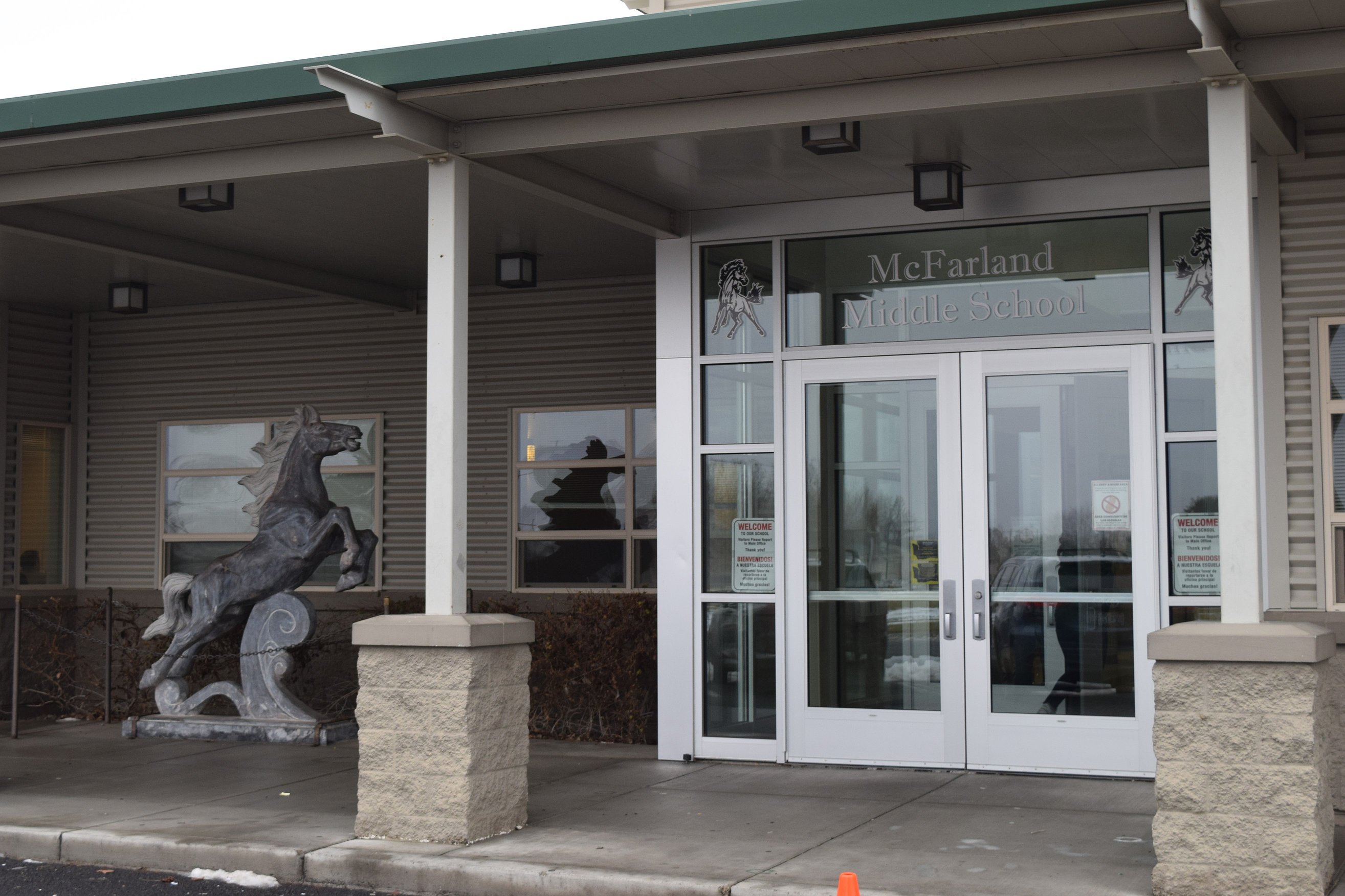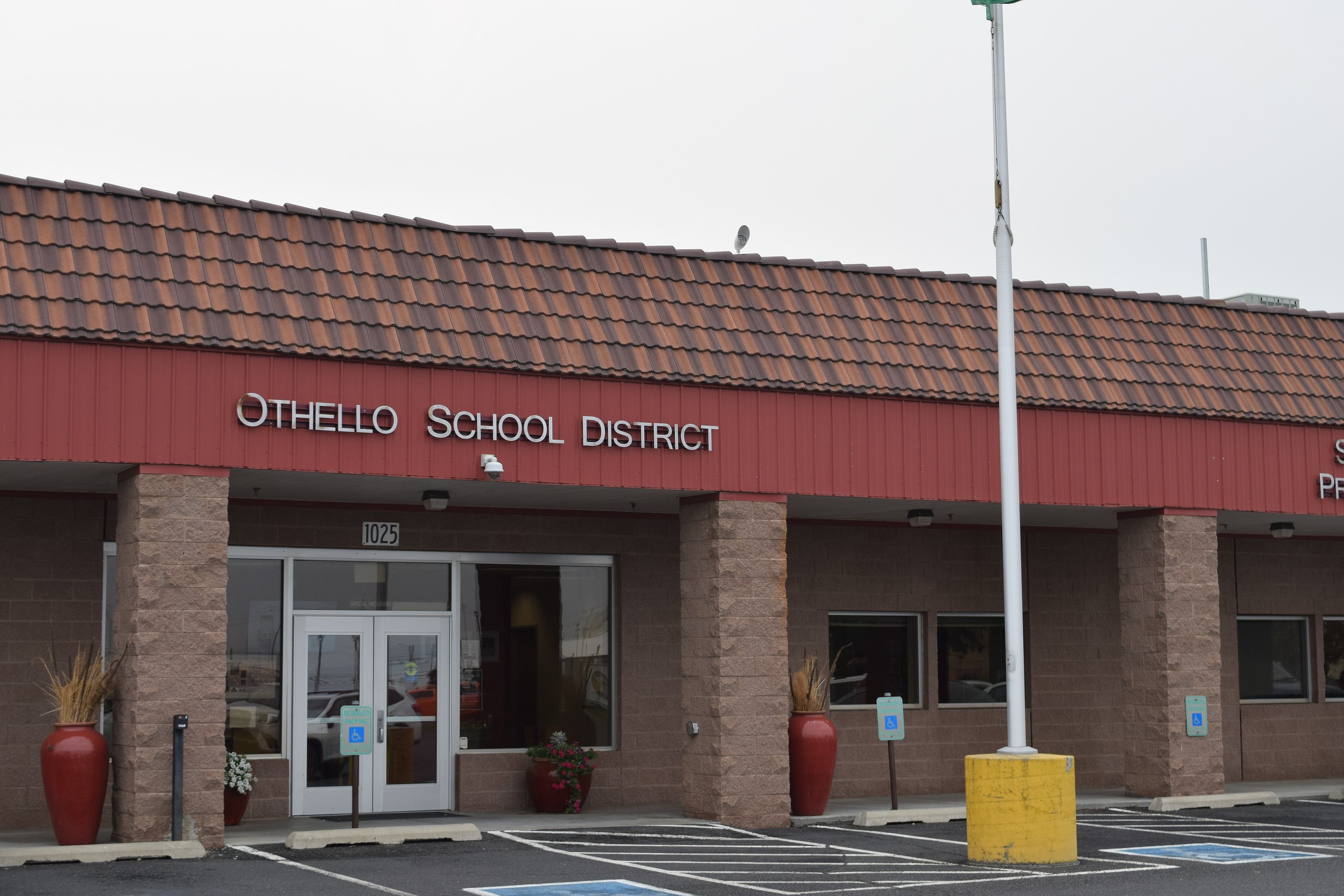McFarland staff present on new teaching programs
OTHELLO — Faculty and Staff at Othello’s McFarland Middle School attended Monday’s regular Othello School Board meeting to present on ongoing programs and changes at the school following the board’s annual McFarland site visit that morning.
McFarland Principal Carlos Gonzalez introduced the presentation.
“We put a lot of time and effort into the work that we do for our kids and for our staff and community,” Gonzalez said. “But what you'll also see is that it's a total team effort.”
Gonzalez said McFarland’s state testing average is lagging behind the state average. According to the presentation slides, Smarter Balanced Assessments in English Language Arts were about 24% behind the state average in the 2022 to 2023 school year, and the Math average was about 23% behind.
“We're getting better every day, and we're just inching away at the growth that we need to gain for our kids, in other words, closing that gap between the way Washington state looks and where we are right now,” Gonzalez said. “Even though our demographics are very different compared to Washington state, we're here to challenge that and to defy that and really make some impressive gains, but it's going to take time, and we believe that we're sitting up the system to be able to do that.”
Gonzalez elaborated on the school’s performance.
“In full candor here, we were identified as a school of improvement, a tier three comprehensive school of improvement. Through this process, it really forces us to look at ourselves,” he said. “Our number one goal at McFarland is to increase our student sense of belonging by at least 10%.”
The middle school’s second goal is to increase the Math and ELA assessment averages by 5% by the end of the school year, Gonzalez said.
Assistant Principal Jenny Hokanson discussed one of the programs the school implemented in the 2023 to 2024 school year to help improve student success, called Student Teacher Access Time
“What we're using it for is interventions and incentives … Really what it is is a specific time that we can intervene with students,” Hokanson said. “We were noticing a lot of our students can't stay after school for after-school help and things like that. They have to ride the bus home; transportation is always an issue, so building this into the school day was really important for us, so that every student would have this time.”
The program helps students focus on certain subjects in scheduled intervention rooms which earns them access to “fun rooms” as they work on the subjects they need extra help with.
“Each week, there are specific intervention rooms and there's priority week, so they're subjects that have priority, and they rotate through,” Hokanson said. “So math, ELA, science and history all rotate through their priority week.”
McFarland Teacher Ashleigh Field spoke in a pre-recorded video about another program the school has implemented, Positive Behavior Interventions and Support.
“One of the surface things that our students really connect with PBIS is the opportunity to get rewarded for the things that they do well in class. Our school-wide expectations are be respectful, be responsible, and be safe, and when students do those things they are able to earn points to redeem for either small prizes or privileges in class,” Field said.
The program is meant to shift the students’ motivations.
“After we have rewarded students for displaying the behaviors that we like to see in class, over time we realized that we can reward them less and they're more likely to show those behaviors as it becomes intrinsically motivated,” Field said. “Ideally, the goal is to kind of move them to the next stages of motivation, where they're motivated to do the right things in class and be respectful, responsible, and safe classmates.”
McFarland’s other Assistant Principal Brenda Dunn spoke about a new grading system called Standards-Based Grading.
“At the heart of Standards-Based Grading is that partnership between students and teachers. It really challenges the traditional framework of teachers being at the front of the room, teaching a classroom, to more of a partnership between me and my students, ‘Here's what I need to teach you. How can I get that information across to you in a way that's going to really empower you to want to learn, want to do the work?’" Dunn said. “It allows students to take an active role in their education.”
Gonzalez summed up the presentation.
“What really came out here is just accountability. When you look at these different things, nobody can argue against these. These are good things for our kids. These are good things for our staff,” Gonzalez said. “Accountability, ownership, motivation, character, integrity, empowerment, student voice and belonging. These are all good things that have resonated through student testimonies and teacher testimonies. So, we're on the right track. We have a long way to go, but we have the right pieces in place that if we can just continue to master them we're going to do well.”
Gabriel Davis may be reached at [email protected].





